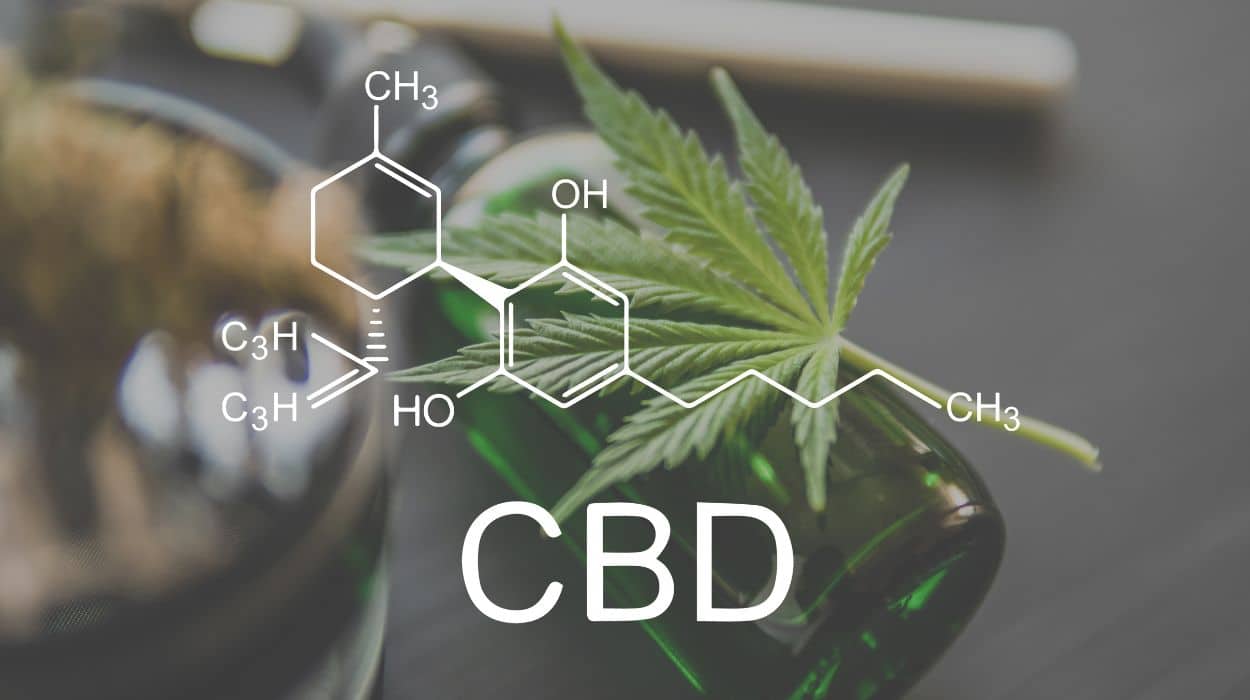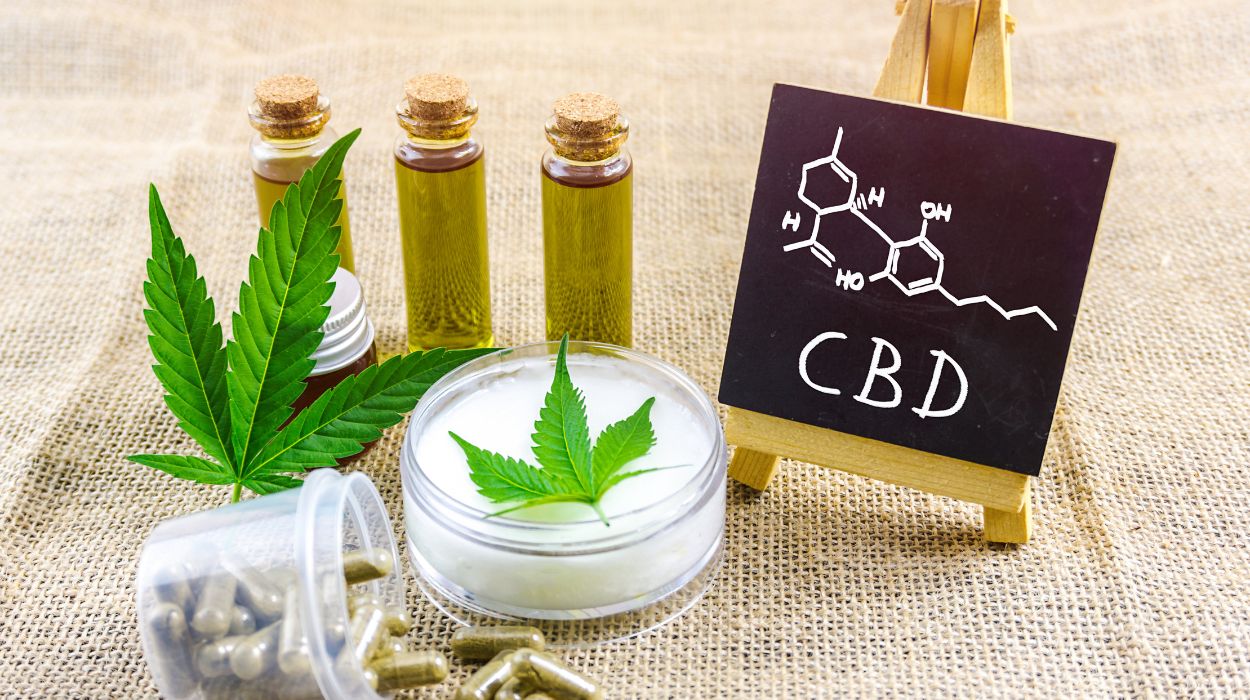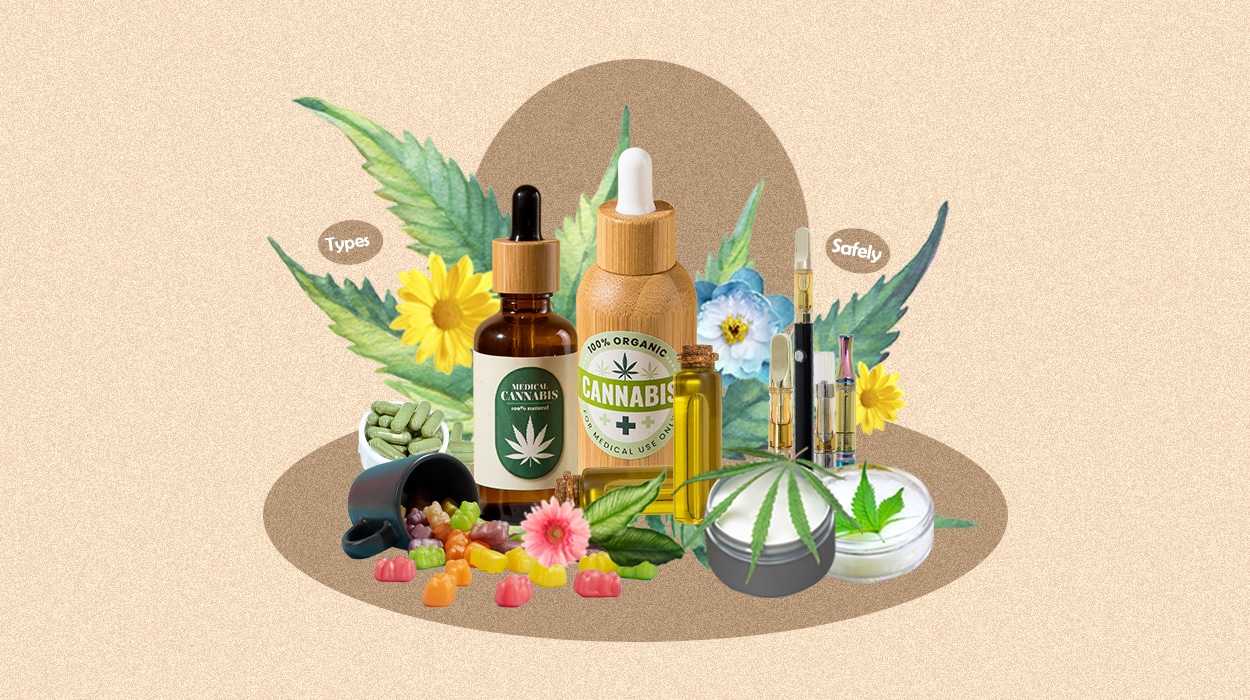Cannabidiol or CBD, is rapidly rising to the top of the list of the best natural pain relievers. The cannabis plant’s CBD is used to create medications that relieve pain without having any intoxicating side effects. Contrary to the majority of painkillers, including opioids and other prescription drugs, CBD oil has little to no negative effects. Many different CBD products are made from hemp, including tinctures, candies, pills, topicals, and more. Additionally, CBD products include several CBD oil varieties, such as full-spectrum CBD, broad-spectrum CBD, and CBD isolate. The “entourage” effect is provided by full-spectrum CBD oil, which contains all the chemical elements found in a hemp plant, including THC. Broad-spectrum cannabis contains every substance found in a cannabis plant aside from THC, whereas CBD isolates only contain pure CBD.
This article comprehensively describes CBD oil, including what it is, CBD types, health benefits, side effects, and much more.
3 Common Types Of CBD
Three types of CBD oil can be distinguished: full-spectrum CBD, broad-spectrum CBD, and CBD isolate.
- Full-spectrum CBD[1]: All the elements of the cannabis plant, including a trace amount of THC, are still present in this kind of CBD. Although full-spectrum CBD products compliant with federal law usually include less than 0.3 percent THC, it’s vital to be aware that THC can still be found in these products.
- Broad-spectrum CBD[2]: Except for THC, this form has every element of the plant.
- CBD isolate[3]: Without any additional plant ingredients, this form is exclusively CBD.
Types Of CBD
What kind of CBD oil can be obtained depends on the method of CBD extraction. Three types of CBD oil can be distinguished: full-spectrum CBD, broad-spectrum CBD, and CBD isolate oil. All of the chemical components, and beneficial cannabinoids, of a cannabis plant, are present in full-spectrum oil. Additionally, it has THC that is less than the 0.3% legal limit. All the chemical constituents found in cannabis botanicals—aside from THC in minimal amounts—are in broad-spectrum CBD oil.[4] Pure CBD oil is an isolated CBD oil. The purest form of CBD is CBD isolate, which is free of any cannabis-related chemical components, unlike full-spectrum CBD and broad-spectrum CBD oil.
Full-spectrum CBD
All the elements of the cannabis plant, including a trace amount of THC, are still present in this kind of CBD. Although full-spectrum CBD products compliant with federal law usually include less than 0.3 percent THC, it’s vital to be aware that THC can still be found in these products.
Broad-spectrum CBD
Except for THC, the broad-spectrum form has every element of the plant.
CBD isolate
Without any additional plant ingredients, this form is exclusively CBD.
What Is CBD?

One of the numerous active substances included in the cannabis plant is CBD. It interacts with the endocannabinoid system in your body, which aids in preserving equilibrium. CBD is mostly extracted from the cannabis plant (hemp plant); however, doing so has a high THC content, which has psychotropic effects. The hemp plant is one of the primary sources of cannabidiol oil. Depending on the extraction method, CBD oil is combined with carrier oils like hemp seed oil, fractionated coconut oil, MCT oil, or other oils to produce broad-spectrum CBD oil or full-spectrum CBD oil products.
The former has every chemical component of the hemp plant, while the latter solely has cannabinoids other than THC. It is free of chemicals because CBD isolate is the substance’s purest form. Then, MCT oil or other carrier oils are added to dilute the CBD oil. Anxiety and pain reduction are just two of the medical ailments that CBD product is used to treat. CBD products are often advised since they have fewer mild side effects than prescription drugs.
Different types of CBD oil products are available depending on how CBD is extracted. There are three different kinds of CBD oil: full-spectrum CBD oil, broad-spectrum CBD oil, and CBD isolate oil. Full-spectrum CBD oil contains all the cannabis plant’s chemical constituents or useful cannabinoids. It also contains THC, which is below the 0.3% legal limit. Broad-spectrum CBD oil contains every chemical component present in cannabis botanicals, except THC, which is present in very small levels. An isolated CBD oil is pure CBD oil. Contrary to full-spectrum and broad-spectrum CBD products, CBD isolate is the purest form of the substance because it is devoid of all chemical constituents associated with cannabis.
Different Forms Of 2024 CBD Products

CBD oils come in different spectrums, including full-spectrum CBD, broad-spectrum CBD, and CBD isolate. Also, they come in different CBD products, including CBD topicals, gummies, capsules, tinctures, bath bombs, vapes, and many more.
- Capsules are an excellent option since they are easy to dose and swallow.
- Tinctures come in different CBD potency and tasty flavors
- Creams have different strengths and are applied to the skin to relieve inflammation and pain.
- Topicals are also applied to the skin. They come in different forms, including balms, lotions, and creams.
- Vape pens are an excellent option if you seek to inhale CBD oil.
- Tongue sprays, as the name suggests, are consumed orally.
- CBD gummies are CBD edibles that are colorful, delicious, and effective.
Ways To Consume CBD Oil
CBD oils come in different forms and strengths, and this allows consumers to choose how to use CBD products effectively. The following are various ways to consume CBD products:
- Sublingually involves placing CBD oil under your tongue and swallowing after sixty seconds. CBD oil tinctures are sublingual products.
- Topically involves applying the CBD product on your skin. CBD creams and lotions are typically consumed.
- Vaping involves inhaling CBD oil using vape pens.
How Does CBD Interact With The Body?
In contrast to THC, CBD usually has no side effects and doesn’t get you “high”.
The exact nature of CBD’s interactions with the Endocannabinoid System[5] (ECS) is unclear to experts. However, they are aware that it does not attach to CB1[6] or CB2[7] receptors in the same manner as THC.
Some people think that CBD binds to an unidentified receptor. Instead, many people think it functions by stopping the breakdown of endocannabinoids. They can affect your body more as a result.
Research indicates that CBD may assist with pain, nausea, and other symptoms linked to a variety of diseases; however, the specifics of how it works are still up for debate.
The Potential Benefits Of CBD
The following are various health benefits of using CBD oils:
- Pain relief[8]
- Relieving anxiety, stress, and depression
- Improves sleep quality
- Might reduce cancer-related symptoms
- Reduces seizures related to neurological ailments
- Boosts cardiovascular health
How To Use CBD Safely?
Before using a supplement, consult your healthcare professional to ensure that the supplement and dosage are appropriate for your specific needs.
Conclusion
CBD-infused products are a great natural option for internal and regional pain alleviation. They can also be used to treat anxiety, depression, and inflammation, as well as to improve sleep quality and reduce seizures, among other things. These products should be avoided by nursing and pregnant women. Before utilizing these items, people with an underlying disease or any prescribed medicine should visit a healthcare provider.
Frequently Asked Questions
You can purchase CBD oil so long as it contains the legal limit of THC, 0.3%. However, CBD is illegal in some states.
No. These products do not have psychoactive properties.
This depends on the method of administration. Vaping and smoking offer immediate results compared to edibles, capsules, and topicals.
Apart from relieving anxiety, these products can help reduce pain, boost brain functionality, prevent neurological diseases, manage chronic pain, and many more.
Some users report various side effects,[9] including diarrhea, agitation, appetite change, drowsiness, and irritability.
Many brands are offering premium quality products. The ones mentioned above are among them.
This differs from one state to another; however, you should be at least 18-21 years or older.
Yes, these companies offer CBD pet treats and oils to relieve anxiety for pets.
 Expert's opinion
Expert's opinion
